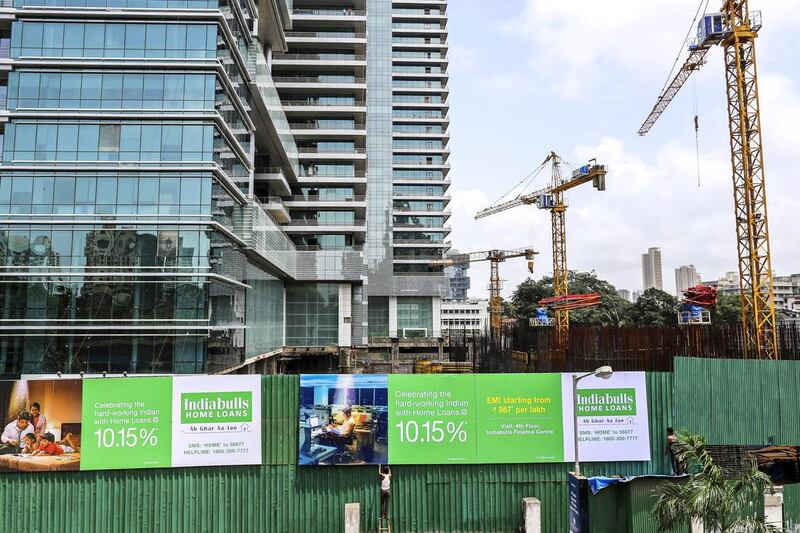India's economic slowdown, high inventories of unsold homes and changes in regulations by the central bank, are set to put downward pressure on home prices in major cities, experts say.
Yashwant Dalal, the president of the Estate Agents Association of India, says that rates are set to fall as the festive season approaches. “Prices are on a deep slope and will be tumbling fast,” he says, explaining that property prices in Mumbai have risen to unrealistically high levels.
“The residential real estate demand has been subdued in the recent past with the consumers following a wait-and-watch policy,” according to a report on Mumbai’s property market released this month by Icra, a credit rating firm in India. “With the approvals gradually flowing in, the pace of new launches is expected to increase, thereby leading to increase in supply in the market.
“Going forward, considering the increase in inventory levels, subdued demand scenario with no immediate improvement in sight, and uncertain macro environment, the developers would find it difficult to increase prices. While the announced prices appear to have remained firm in the recent past, there has been a tacit price correction brought around through innovative marketing schemes being offered by developers.”
The Reserve Bank of India (RBI) recently banned banks from issuing loans under the “80:20 scheme”, which through a three-way agreement between the lender, the developer and the homebuyer, allowed the customer to pay 20 per cent upfront, while the remainder of the loan would be issued to the developer, regardless of the stage of construction.
“Several viewpoints have been floated since the RBI announced this ban, largely speculating on a fall in real estate prices as a consequence,” said Ashutosh Limaye, the head of research and real estate intelligence service at Jones Lang LaSalle India. “It has been opined that developers’ holding power will be significantly reduced, forcing them to reduce prices. This analysis of the situation is based on the currently high levels of inventory that developers are saddled with, especially in larger cities like Mumbai, Bangalore and Delhi.
“Indeed, inventory levels in the leading seven cities in India are much higher than the comfortable industry levels seen around eight to 10 months ago, which is between 14-15 months’ worth of unsold supply,” Mr Limaye added.
Data from the National Housing Bank showed that 22 out of the 26 cities that it covers in India experienced declines in residential property prices in the quarter between April and June compared with the previous quarter. Prices in Hyderabad fell 4.55 per cent, while in Kolkata there was a 4.06 per cent decline, the figures showed. Home prices in New Delhi were down 1.49 per cent, while in Mumbai they dropped 0.45 per cent.
A surprise interest rate rise announced by the RBI on Friday and new regulations planned for the property sector are also expected to affect developers.
“With the proposed Real Estate Regulatory Bill, where developers are expected to keep considerable portion of sales in escrow account for the majority of the construction period, finance cost for developers is expected to increase,” said Anuj Puri, the chairman and country head of Jones Lang LaSalle India.
“This, along with an increase in cost of construction and the already challenging economic scenario, is expected to affect profit margins of developers. In such a scenario, the real estate industry was obviously hoping for relief from RBI by way of reduction in financing cost.”
business@thenational.ae






